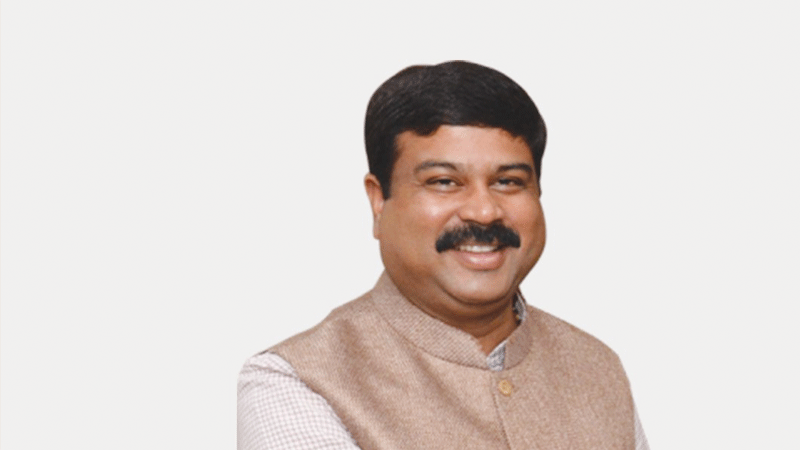Dharmendra Pradhan
Prime Minister Narendra Modi met Russian President Vladimir Putin in Vladivostok on September 4. The visit and its outcomes are a peek into how foreign policy has transmuted in the past few years of the Modi regime, affecting every sector and percolating affirmatively into the common person’s life.
The highlight of the visit were the inroads made in Russia’s Far East region – an underdeveloped part of the country brimming with natural resources, like oil and gas, diamonds, gold, coal and other vital polymetals. 49 MoUs were signed between the Russian and Indian public and private players during the PM’s visit.
India and Russia have had a special, privileged and strategic partnership but the relation in recent days has steadily expanded into non-traditional spheres. Before his Vladivostok sojourn Modi sent two Union ministers, including me, and four CMs to scout for investment and trade opportunities in the country.
Here is a snapshot of why Russia is vital for us, especially as a trade partner. Russia is a global energy powerhouse – it is the largest holder of hydrocarbons and the largest exporter of gas in the world. India, on the other hand, is heavily import-reliant for crude oil and LNG.
It is, therefore, imperative that we diversify our sources in the age of volatile geopolitics. Moreover, in moving towards a $5 trillion economy, the demand for energy will only go up. Russia has the potential to be a natural and stable partner for fulfilling the needs of an aspirational people, while also benefitting from the partnership.
Our strategy has been twofold: one, to increase Indian assets in the region, and the other, to enter into stable supply contracts. Towards the first end, we have invested around $15 billion in Russian assets, including OVL’s investment in Sakhalin-I and Vankorneft that have been one of their best investments to date.
For achieving the second objective, Indian companies are now entering into long-term crude contracts with Russian partners. For instance, GAIL entered into a contract with Gazprom for purchase of 2.5 mmtpa of gas. Russia, looking to increase its LNG exports, signed an agreement with the government for increased use of LNG as a transport fuel, which includes preparation and evaluation of readiness of vehicles, information exchange, developing city gas distribution networks and so forth.
The Russian government is taking several steps – that will work to our advantage – to increase the viability of export of hydrocarbons, including through the development of the North Sea Route, development of port infrastructure and the development of an incentive-based tax regime, which will encourage companies to invest in assets in the Arctic. On the other hand, Russia is the largest investor in India’s oil and gas sector, with Rosneft-led consortium’s investment of $12.9 billion in 2017.
Additionally, for the first time we found significant openings in sourcing of metallurgical coal – which is not produced in significant quantities in India but majorly feeds into the steel industry – from the Russian Far East. Non-binding MoUs between NMDC and SAIL with the Russian Far East mining company, that provide for long-term contracts for sourcing, exploring and extracting metallurgical coal resources from the region and also training of experts and joint development of future technologies, have been exchanged.
Owing to the PM’s visionary diplomacy India has partaken of the first mover’s advantage in the Far East. The government has extended a $1 billion line of credit to the region, primarily an enabling clause to help our businesspeople set up shop at a place, which lacks infrastructure but is vitally rich in trade potential. This will be a tool for the government to handhold its own commercial interests in the region.
Modi’s astute diplomacy has resulted in a paradigmatic shift in India’s standing in diplomatic negotiations. It is, indeed, a matter of pride for us that while we have emulated the Soviet model of five-year plans, today, the Russians want to come to India to understand our city gas distribution networks and its implementation strategies. So also for the Ujjwala scheme, where Latin American, African and our neighbouring governments have sent delegations to understand how the scheme was implemented. Moreover, because of our diversification of crude procurement, consumer countries now have a voice in forums like Opec, which have traditionally been producer dominated.
(The writer is Union minister of Petroleum & Natural Gas and Steel)


